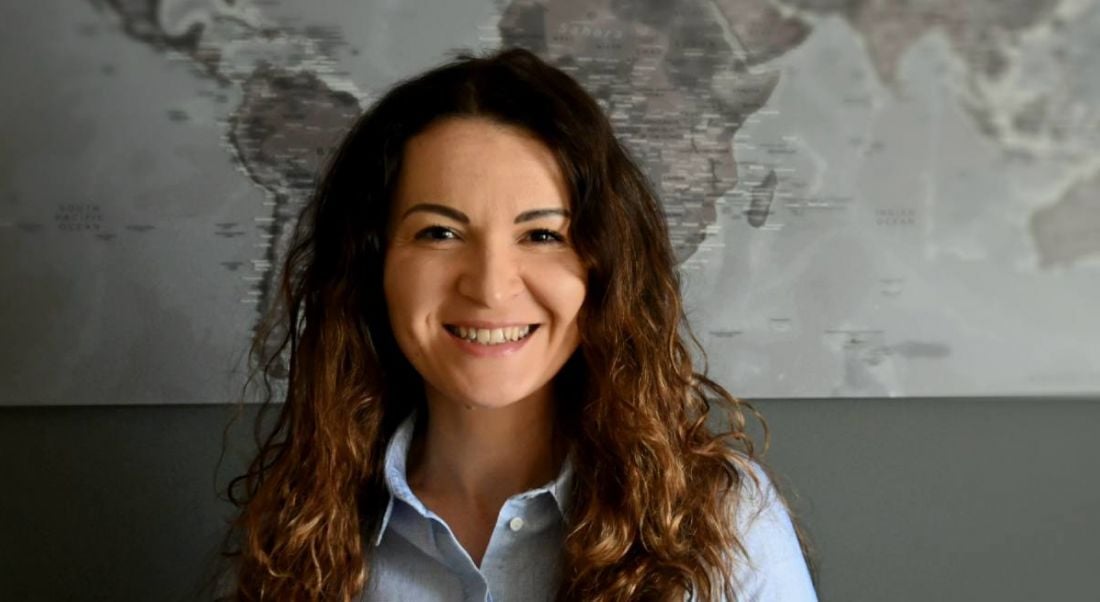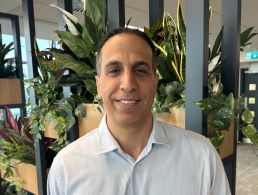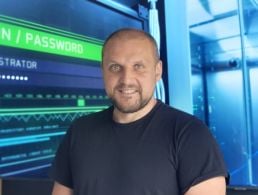Workhuman’s Vanja Lackovic shares how she and her team strive to work smarter, not harder, and discusses the importance of empathy as a skill.
Vanja Lackovic is an engineering manager at Workhuman, where she has led several teams over the last couple of years. She has more than 10 years of experience in tech, having worked for Ericsson prior to joining Workhuman.
She told SiliconRepublic.com that her scheduled is driven by the three pillars of the engineering manager role – people, strategy and delivery.
“The only constant in my working day is a daily stand-up with my team, where we synchronise our activities and create a plan for the day, but also where we catch up on our personal stories and have some fun,” she said.
‘Trust is a vital component of a high-performing team’
– VANJA LACKOVIC
If there is such a thing, can you describe a typical day in the job?
As an engineering manager, my primary role is supporting my team and making sure they have everything they need to be successful in their roles. That includes responding daily to the challenges they are facing. And it also means I am involved in a lot of prioritisation and alignment activities and meetings to ensure my team can focus on tackling the most impactful opportunities.
The most important part of my day is check-ins with my team members. They are an opportunity for me to learn more about how people feel about work, what is going on in their lives, what motivates them, what their career aspirations are and how I can support them.
I am regularly involved in cross-functional initiatives that help us learn from one another and get better at what we do. Last year I helped design and roll out a workshop on trust, psychological safety and radical candor to our engineering department.
The goal of the workshops was to give our teams the language and the framework that will help us all get better at giving feedback so that we could improve individually and collectively.
Finding time in my day to learn new things is also very important to me. Having just returned from the LeadDev conference, I have to say that Workhuman has been great in creating and supporting opportunities to develop our skills.
What types of project do you work on?
One of the projects we are currently working on is expanding notifications in our app by building a message centre. This will allow our users to access key messages at their own convenience. We are using a data and experiment-led approach to ensure we build what is best for our users.
We are always looking for ways to improve. Another interesting thing we did recently was a heuristic evaluation of our app’s user interface and overall user experience. The outcomes of this activity will drive the enhancements we make in the near future.
An example of a cross-functional initiative I have recently been involved in is job architecture. The goal of this company-wide initiative was to improve our framework to further support growth and development for everyone at Workhuman.
What skills do you use on a daily basis?
Empathy. We work with people, so the ability to understand another person’s feelings and perspective is crucial for every interaction we have as part of our roles. Empathy is the foundation of trust, and we know that trust is a vital component of a high-performing team.
Effective communication, collaboration and decision making come to mind next. Every day I am involved in a number of conversations on different topics and with different audiences.
How we communicate, collaborate and make decisions is extremely important to ensure we are all rowing in the same direction. This includes providing the team with the clarity and space they need to achieve their goals and to excel in their roles.
What is the hardest part of your working day?
It is finding time to focus among different initiatives, meetings, various Slack conversations and emails. We are all operating in a world in which we are overloaded and overstressed. It takes conscious effort to remind ourselves what matters most and to shift our energy there.
Do you have any productivity tips that help you through the working day?
Our health is the most important thing we have. It is what enables us to do meaningful work. Looking after my own wellbeing, as well as wellbeing of my team, is the most important thing I can do.
Taking proper breaks, taking time off, not contacting people outside of working hours, understanding what gives me energy and making sure I book some time in my day for it, blocking out my calendar for lunch – these are so important!
I also tend to schedule 25 and 50-minute meetings, instead of 30 and 60 minutes. That gives people a few minutes between meetings to stretch their legs or get a glass of water.
In the Workhuman engineering department, we are constantly on the lookout for tips that can help us become more effective at what we do. I prefer the term effective as we can be productive without creating or delivering valuable outcomes.
A few years ago, I attended FranklinCovey’s ‘The 7 Habits of Highly Effective People’ course organised by the Workhuman learning and development team. One of the habits is called ‘Put first things first’.
Our activities can be categorised based on their urgency and their importance into four quadrants: necessity, effectiveness, distraction and waste. We want to be in the quadrant of effectiveness as it is also the quadrant of learning, opportunities and proactiveness.
One thing that can help us get there is to start out every working week with a 30-minute planning session. Looking at our calendar and our to-do list and categorising all the activities into the quadrants gives us clarity on where our time is and should be spent and helps us eliminate waste and distractions.
Sometimes just a simple, ‘What is my “big rock” this week, the one important thing I could do to make difference?’ question can set the tone for the week. I’ve noticed a big difference when I start my week with planning.
Also, I always ensure I make time for building genuine connections and having fun!
How has this role changed as this sector has grown and evolved?
Leadership in general is dynamic and it keeps changing over time.
Historically, the role of a leader was more associated with autocratic style and task-oriented approach. Nowadays, effective leaders are the ones who can empower and inspire others, who can create psychologically safe environment for their people.
This kind of people-oriented leadership style has opened the door for experimenting, continuously learning to improve the way we work, being agile in responding to the customer and market needs and making data-informed decisions.
This has hugely influenced the way we also think about hiring. There is much more to hiring than ensuring the candidates have the necessary competency and experience.
For example, as we know that diversity is one of the key drivers of innovation, we look for humans who think differently to us, who come from different backgrounds, who have different experiences and different strengths.
We also know that one thing all high-performing teams have in common is psychological safety. We look for curiosity, vulnerability, humility, resilience, empathy, effective communication and honesty to help us create and maintain a safe environment.
We need people who think in outcomes and who can put themselves in our user’s shoes. All we as leaders need to do then is provide clarity and give them the space needed to do extraordinary things.
What do you enjoy most about the job?
I enjoy Workhuman’s culture of recognition and celebration. I am proud of being part of creating our product that helps build a more human-centred workplace.
I work with incredible humans that are passionate about what they do. We have a lot of fun together! I am challenged in my role and I learn something new every day.
10 things you need to know direct to your inbox every weekday. Sign up for the Daily Brief, Silicon Republic’s digest of essential sci-tech news.




